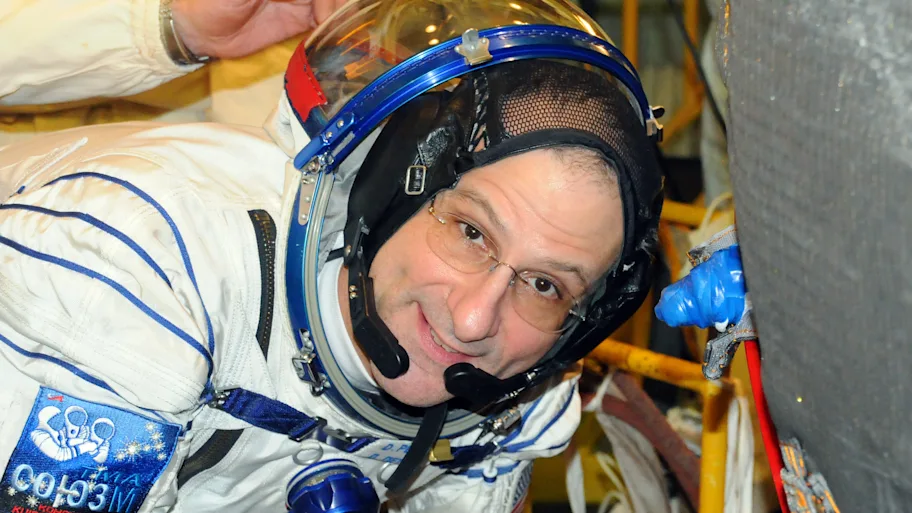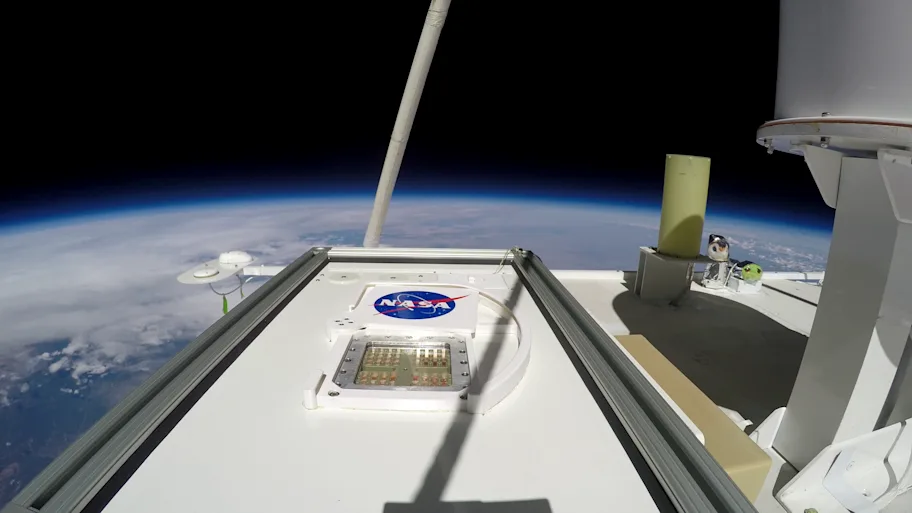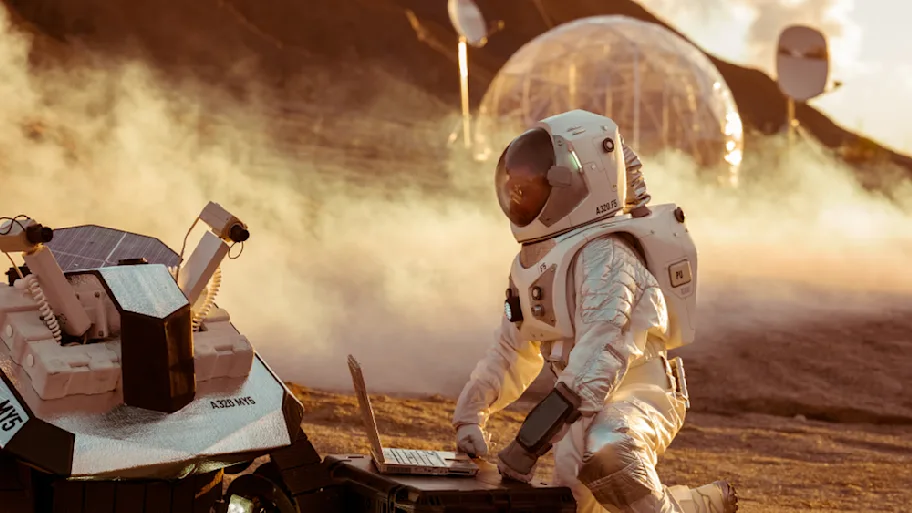
- Science News
- Space sciences and astronomy
- Gut microbes could allow space travelers to stay healthy on long voyages
Gut microbes could allow space travelers to stay healthy on long voyages
By Conn Hastings, science writer
Space travel is associated with a variety of negative health effects, including bone loss and mental health issues, which could limit our ability to undertake long-distance space missions, such as a mission to Mars. A new review highlights the potential of treatments that enhance gut microbes as a way to protect space travelers during long voyages.
Spending long periods of time in space can wreak havoc on space traveler health, including negative effects on metabolism, bone and muscle health, gastrointestinal health, immunity and mental health. This could prevent us pursuing long-distance missions, such as a Mars landing. However, a new review in open-access journal Frontiers in Physiology highlights that promoting a healthy gut microbiome could protect space travelers from the rigors of space travel. Finding out which microbes provide the most benefit and the best way to use them could be key to reaching the red planet in one piece.
If humans are to ever walk on Mars, they will need to endure a long space flight, but space travel can have negative impacts on health, potentially limiting how far we can go. The microgravity environment can result in muscle breakdown and reduced bone mass. It can cause nausea, meaning that sometimes space travelers struggle to eat enough (space food isn’t all that nice either). The change in diet aboard a spaceship can disrupt the gut microbiome, leading to further health issues.
These factors can contribute to malnourishment and gastrointestinal problems, such as infection and inflammation. Space travelers can also experience metabolic disturbances, including decreased sensitivity to insulin. Other issues include immune system deficits, mental illness and cognitive decline.
A growing number of studies have focused on gut microbes, and their role in space-related health, prompting Prof. Silvia Turroni of the University of Bologna and Prof. Martina Heer of the University of Bonn to write this latest review.
Their review discusses a variety of studies suggesting that disruptions in the gut microbiome occur during space travel. For instance, one study found that the microbiomes of space travelers on the same mission became more similar to each other during the journey. There was also an increase in bacteria associated with intestinal inflammation and a decrease in those with anti-inflammatory properties.
“Changes in the microbiome are likely to lead to the breakdown of the balanced and complex relationship between microbes and their human host, with potentially severe repercussions on the functionality of body systems,” said Turroni.
Gut microbiome and space travelers’ health: state of the art and possible pro/prebiotic strategies for long-term space missions► Read original article► Download original article (pdf)
However, the review reveals that manipulating the gut microbiome may be a powerful way to maintain health on board a spacecraft. “The literature suggests that nutritional countermeasures based on prebiotics and probiotics hold great promise to protect space travelers,” said Turroni.
So, what would these microbial treatments involve? They may be as simple as nutritionally balanced meals, with lots of fiber to kickstart microbial metabolism in the gut. Other options could be more targeted, including microbial supplements, such as bacteria that secrete immune-boosting substances, or those that synthesize vitamins required for bone growth.
In fact, there is a huge variety of pro-biotics and nutritional options to protect space travelers from specific issues they may encounter in space. However, there is still plenty of work required to figure out which treatments are most effective and how best to use them for each space traveler.
“The well-being of the gut microbiome of space travelers should be among the primary goals of long-duration exploratory missions,” said Heer. “To ensure the success of the mission, we must not overlook the myriad of microorganisms that reside in our gastrointestinal tract and make sure they are in balance.”
While future missions to Mars will undoubtedly look for evidence of microbial life on the red planet, this review suggests that it may be our homegrown microbes that get us there.
Original article: Gut microbiome and space travelers’ health: state of the art and possible pro/prebiotic strategies for long-term space missions
REPUBLISHING GUIDELINES: Open access and sharing research is part of Frontiers’ mission. Unless otherwise noted, you can republish articles posted in the Frontiers news blog — as long as you include a link back to the original research. Selling the articles is not allowed.






